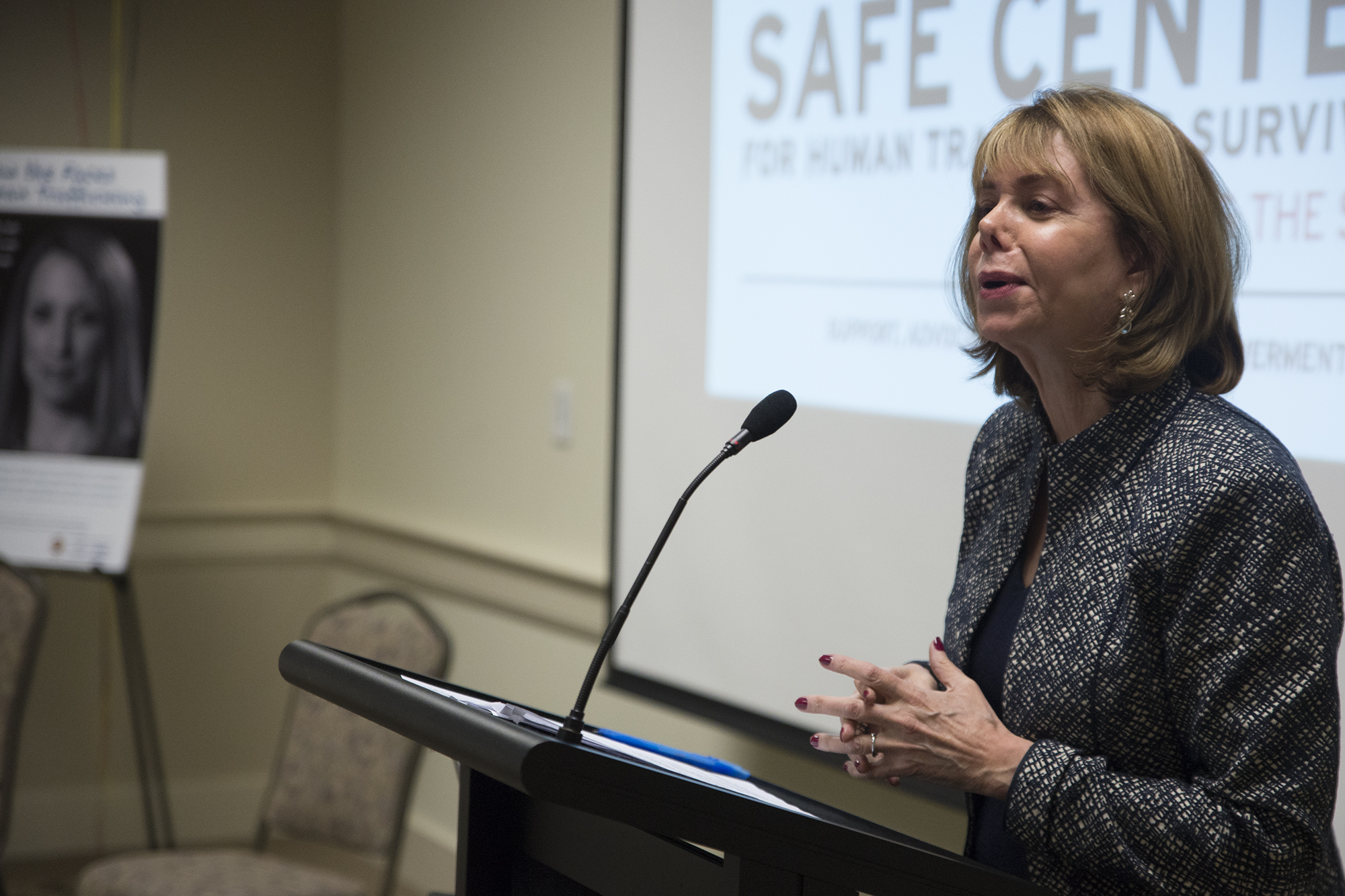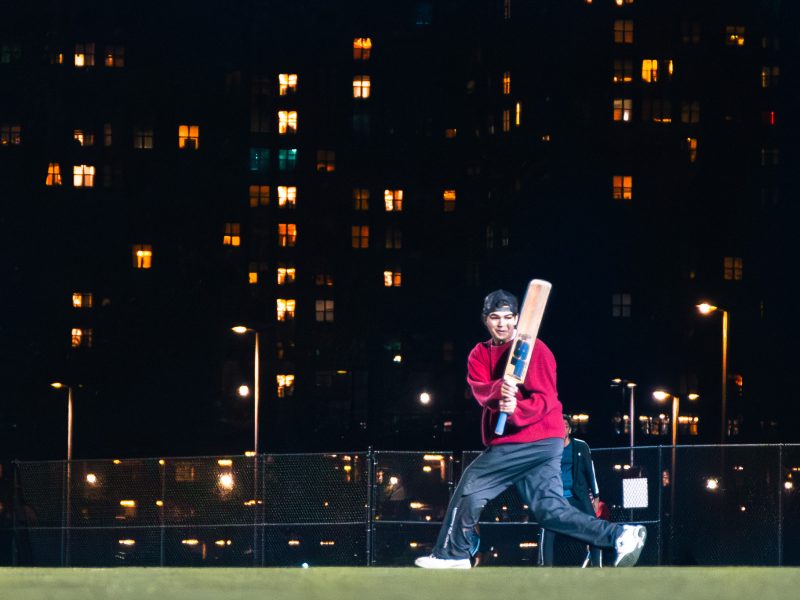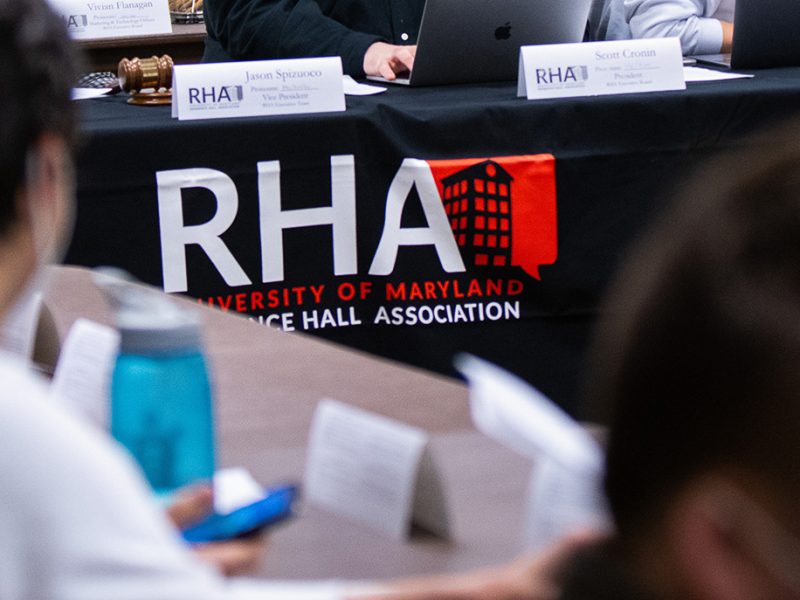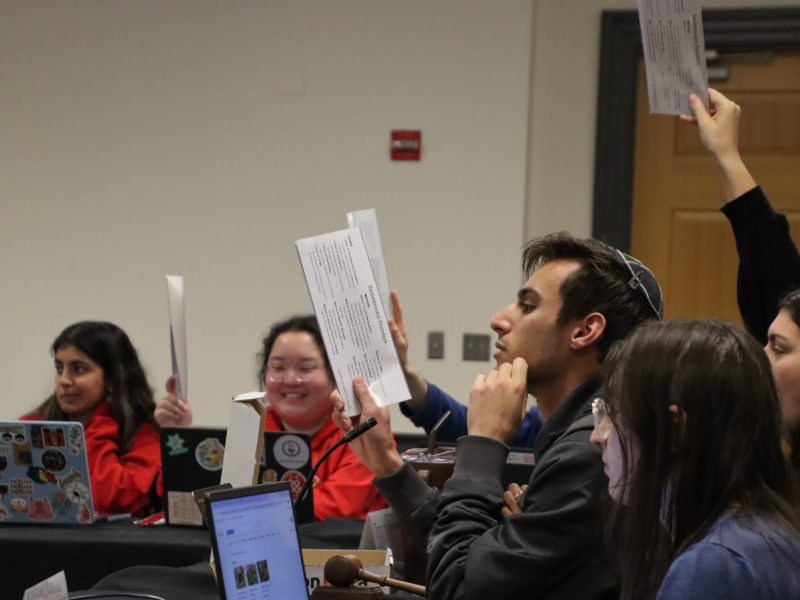Susan Esserman, director and founder of College Park’s SAFE Center for Human Trafficking Survivors, didn’t mince words regarding the prevalence of human trafficking in the state of Maryland.
“There are 50 brothels within seven minutes’ driving distance from this very spot,” she said in Stamp Student Union’s Margaret Brent Room on Tuesday night.
Six students enrolled in COMM498G: Seminar; Event Planning and Communication, taught by Pamela Grant, planned Tuesday’s event as part of their class final project, which was meant to raise awareness and food and toiletry donations that the SAFE Center will give to survivors of human trafficking. It was sponsored by local businesses, and drew more than 20 people.
The gathering featured speeches from Esserman; Laura Ardito, the center’s deputy director; and the co-presidents of Students Ending Slavery, an anti-trafficking group at this university that partnered with the communication class and the SAFE Center for Tuesday’s event. Highlights also included a musical performance, movie viewing on trafficking and raffle drawing. Donations were collected upon entry in exchange for a raffle ticket.
“Especially as UMD students in the Washington, D.C., metropolitan area, it’s a hotspot for human trafficking,” said senior government and politics major Emily Long, who serves as the Students Ending Slavery’s co-president and the center’s social media intern. “If no one on campus knew it existed, that would be tens of thousands of people who didn’t know that existed.”
As of September, there were 66 human trafficking cases reported in this state this year — the 15th highest state rank in the country, according to a Diamondback article. As an attorney, Esserman said many human trafficking victims she has represented came from Prince George’s County.
The SAFE Center, which the University of Maryland and the University of Maryland, Baltimore, launched in May in College Park, had 18 referrals and 10 open cases as of September, which the center considered “high numbers in a short period of time,” The Diamondback reported.
Before planning this event, junior communication major Alexia Deleers said she was unaware of the prevalence of human trafficking in this area.
“Our main goal is just to open students’ eyes to the dangers of it and what the SAFE Center does and how they help … the victims that are involved … move on from that part of their lives,” she said. The center provides services such as legal, medical and health care aid to victims, according to The Diamondback.
Ardito said the best way for college students to combat trafficking is to draw attention to the issue, whether it be on social media, in a student group or bringing it up in class if it’s relevant to discussion.
“I just really hope that students come out and learn about trafficking and really get a lot of good information and take it on as an issue they care about and want to work on,” she said.
After Esserman spoke about the SAFE Center and her history with advocating against human trafficking, Hunter Smith and Andrew Lippe — both Kappa Sigma members — performed “Brighter Days,” written by Smith, as well as Ed Sheeran’s “A-Team.” A movie screening about an alumna of Emory University who was trafficked in college despite coming from a safe environment followed the performances.
The intent of the video was not to scare people, but educate them, Esserman said.
“You should not be worrying that on this campus, that is going to happen,” she said, though she told students to “be smart.”
David Giampetroni, a Kappa Sigma member in COMM498G who was responsible for booking the talent at the event, said the event “100 percent” accomplished it’s goal of raising awareness for the SAFE Center.
“This is an awareness-based event,” said junior communication major Elania Tait, who helped plan the event. “The SAFE Center is here because human trafficking is really prevalent in this area. We just want to make sure that people know that someone is here to help them in any way they need.”



